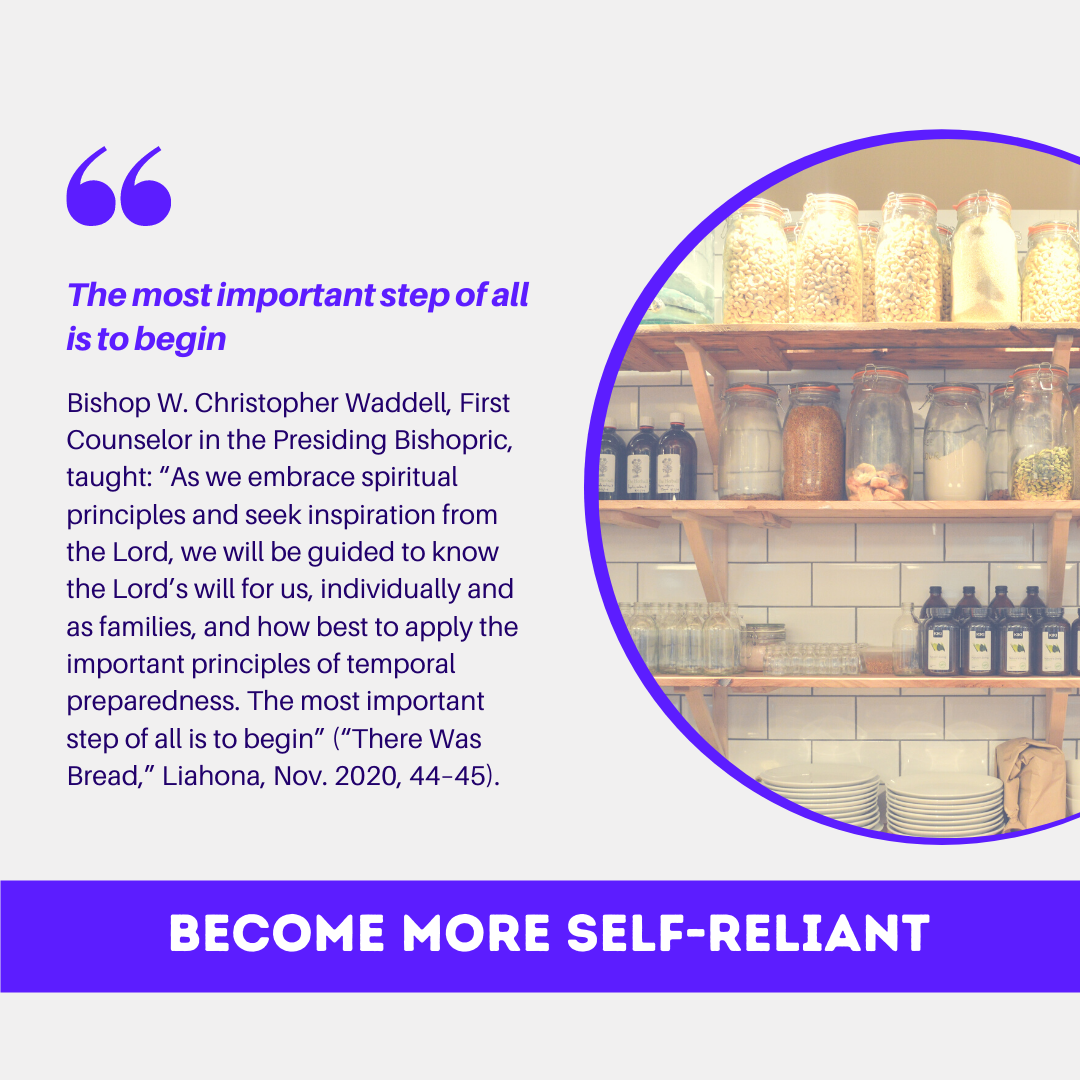Bishop W. Christopher Waddell, First Counselor in the Presiding Bishopric, taught:
“As we embrace spiritual principles and seek inspiration from the Lord, we will be guided to know the Lord’s will for us, individually and as families, and how best to apply the important principles of temporal preparedness. The most important step of all is to begin”
(“There Was Bread,” Ensign or Liahona, Nov. 2020, 44–45).
I have made some handouts with the quote above, also you can view my links to a lot of Food Storage pages, maybe you could put together a Emergency Kit /72 hour kits for your families, or print out the "BE PREPARED FHE LESSONS" for your Ministering family or sister.
Other thoughts from church's web site
As always, ministering begins with prayerful consideration and counseling together. The following suggestions can help you think through how you or those you minister to could begin preparing to meet unexpected challenges.
Think holistically. We can prepare in a variety of ways for different areas of our lives. It’s important to store and produce food as you are able, prepare financially, develop strong emotional resiliency, and make plans for emergency situations.
Discuss challenges that are most likely to occur where you live and how to address them. Different areas around the world have unique challenges. If you live somewhere where earthquakes are common, discuss how you can prepare your home to help you stay safe, such as securing heavy furniture to the wall. Or if you live somewhere where typhoons are common, discuss how to respond in that situation, such as keeping a radio on for news or evacuating to high ground.
Discuss how to create an emergency fund. Saving money can help you if you lose your job or have additional unexpected expenses. Talk about how to save money, such as by starting small and saving a little each time you are paid until you reach your goal.
Gather supplies for an emergency kit together. Having an emergency kit can help you be prepared if you need to leave your home for a brief period. Work together to think through and gather needed items. This can be done over a period of time. Consider shelter, light, money, food and water, medical supplies, communication, critical documents, a change of clothing, entertainment and comfort items (games, books, toys for children), and any other needs.
Build a friendship with the person you serve. It’s important to have strong coping skills for managing the emotions that come with difficulty. One of these skills is to have healthy relationships. As you strengthen your friendship with the person, you will be helping them to create a support system.
Talk about food storage. It can be helpful to have extra food on hand for emergencies. Encourage each other to start by building a short-term supply that you use and replenish in your regular cooking. Then start working on gathering long-term staples. If you don’t have much space for food storage or if you’re prohibited by law from storing large amounts of food, just store as much as is appropriate for your circumstances.

- BE PREPARED FHE LESSONS
- Finances
- Food Storage
- 101 ways to stretch your food dollars
- Apple Box Oven
- Are You Prepared
- Basic Food Storage booklet
- EVERYTHING UNDER THE SUN
- Everything Under The Sun Fireside
- Financing Food Storage
- Food Storage for $$$ dollars a Week
- Food Storage List For A Year
- Handmade Soap
- How to use Powdered Milk without having to Drink It!
- Monthly Storage Calendar and Quotes
- More Ideas for Cooking with Basic Food Storage
- Mountain House Food Storage
- Obtain a 3 Month Supply in 12 Weeks
- Project Noah Getting Started with Food Storage
- Quotes from Church Leaders about Food Storage
- Recipes for refried beans from the cannery
- Rocket Stoves
- Safe Water in Emergencies
- Storage of Dry Foods
- Storing Water Barrels
- WATER PURIFICATION
- Water Storage Information Booklet
- Where To Store
- Why Store Food
- Make Your Own Cleaning Wipes
- Preparedness

